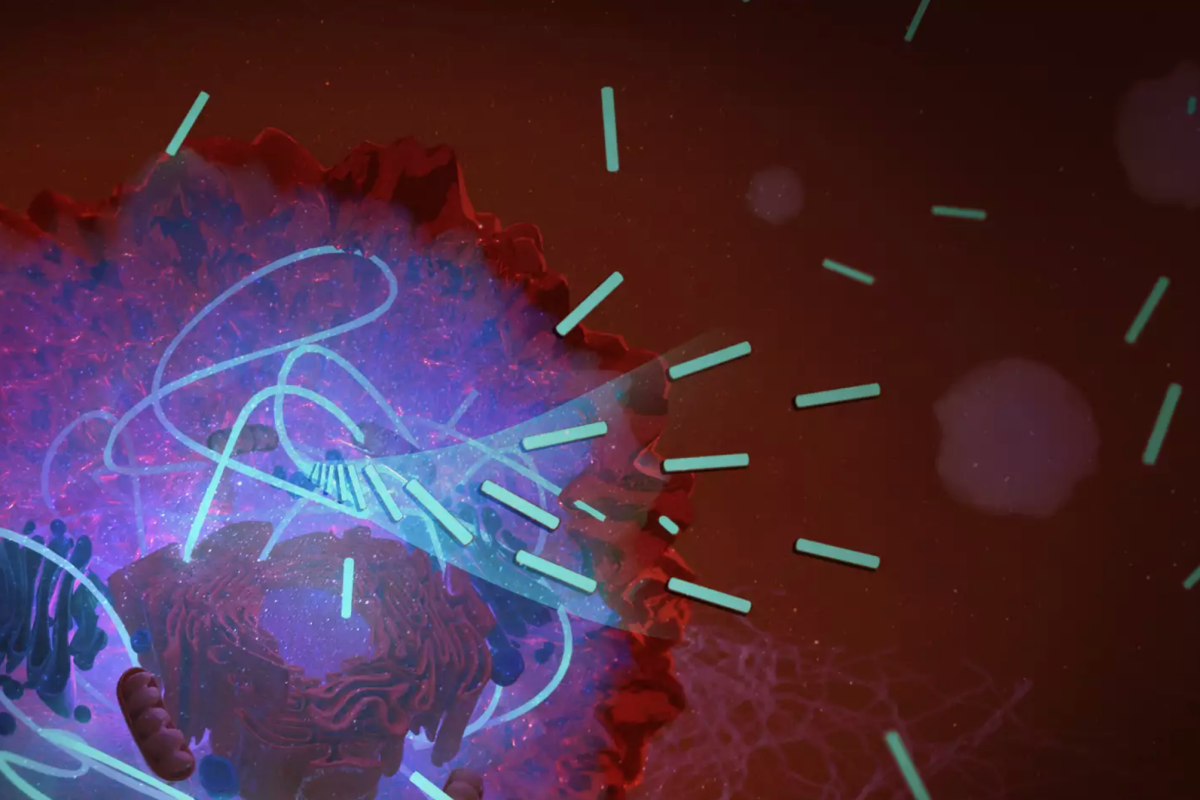
Amazingly, we can watch this do its job and yes it is new. There is no reason that this cannot be applied to all cancers provided it can be restricted to cancer.
even local injection might work here.
It will be interesting to follow this work.
Self-assembling molecules suffocate cancer cells within hours
By Nick Lavars
September 08, 2022
Artist's impression of a new anti-cancer drug at work, using tiny hairs to block the oxygen supply of cells
https://newatlas.com/medical/self-assembling-molecules-suffocate-cancer-cells-hours/
By deploying a newly-developed drug against a key energy source of cancer cells, scientists at the Max Planck Institute for Polymer Research have developed a new way of eliminating them in mere hours. The technique relies on self-assembling molecules that take on a potent form in the cellular environment, and in doing so effectively starve the cancerous cells of the oxygen they need to thrive.
The technology at the heart of this research takes aim at one of the key metabolic functions of cells in all living things called ATP, or adenosine triphosphate. This molecule is the primary energy carrier in cells, capturing chemical energy from the breakdown of food molecules and distributing it to power other cellular processes.
Among those cellular processes is the proliferation of cancerous cells, and because of this we have seen ATP implicated in previous anti-cancer breakthroughs. The authors of the new study sought to cut off the supply of ATP, which is generated as mitochondria soak up oxygen and convert it into the molecule.
The team was able to achieve this through a newly-developed drug described as a platinum(II)-containing tripeptide. When this enters the cellular environment it responds to endogenous hydrogen peroxide by banding its molecules together to form tiny hairs, thousands of times thinner than a human hair.
“These hairs are fluorescent, so you can look at them directly with a microscope as they form,” said study author Zhixuan Zhou.
Watching this play out, the team found that the hairs blocked the conversion of oxygen into ATP. Testing it in untreatable metastatic lung and breast cancer cells in the lab resulted in those cells dying within four hours. This bodes well for the development of new treatments for these types of incurable cancers, which are able to adapt to treatments and continue to evolve.
“We want to prevent such adaptation by invading the main pillar of cellular life – how cells breathe – that means take up oxygen – and thus produce chemical energy for growth,” says David Ng, study author.
Though the team’s experiments focused on the environment within lung and breast cancer cells, the fact that ATP is at work in other cell types suggests the technology might have broader implications in drug development. The scientists note that translating this technology into a safe clinical drug for the human body will require years more work, but hope it can lead to new treatments for difficult-to-treat conditions.
No comments:
Post a Comment